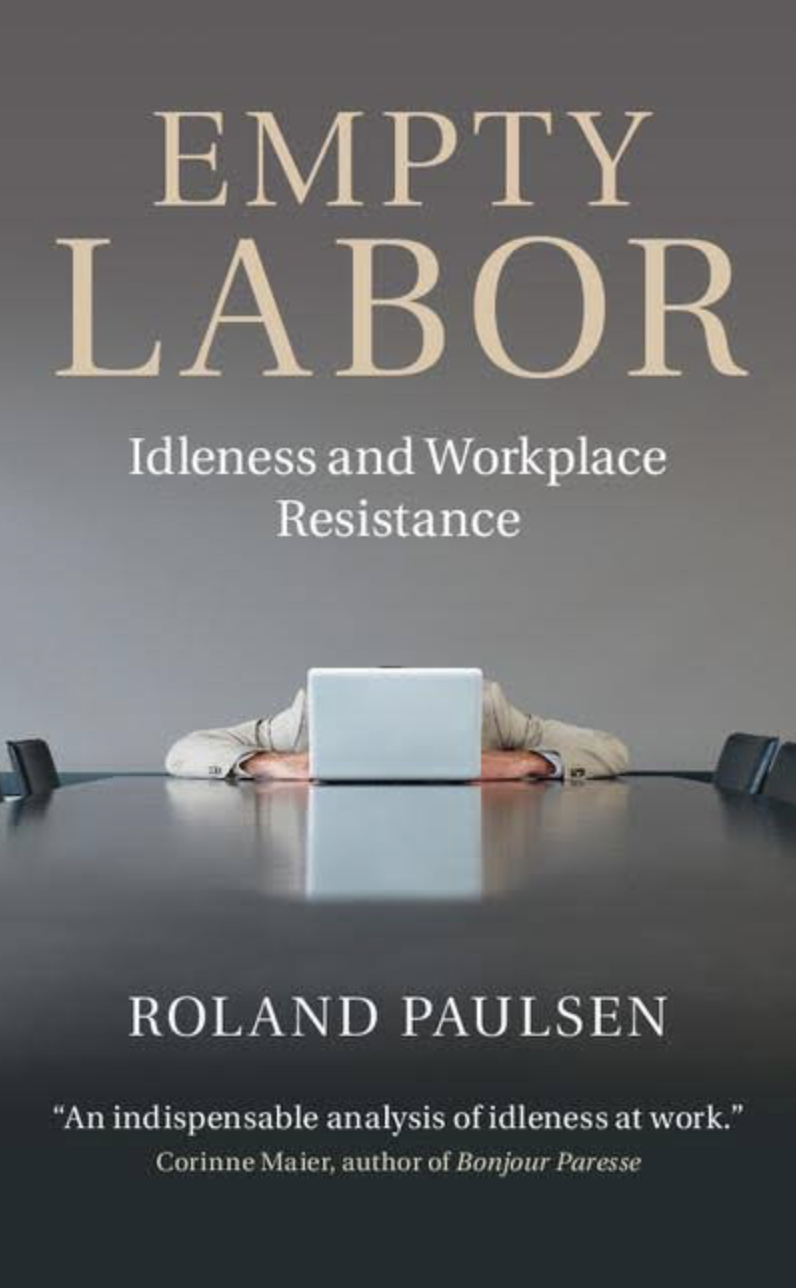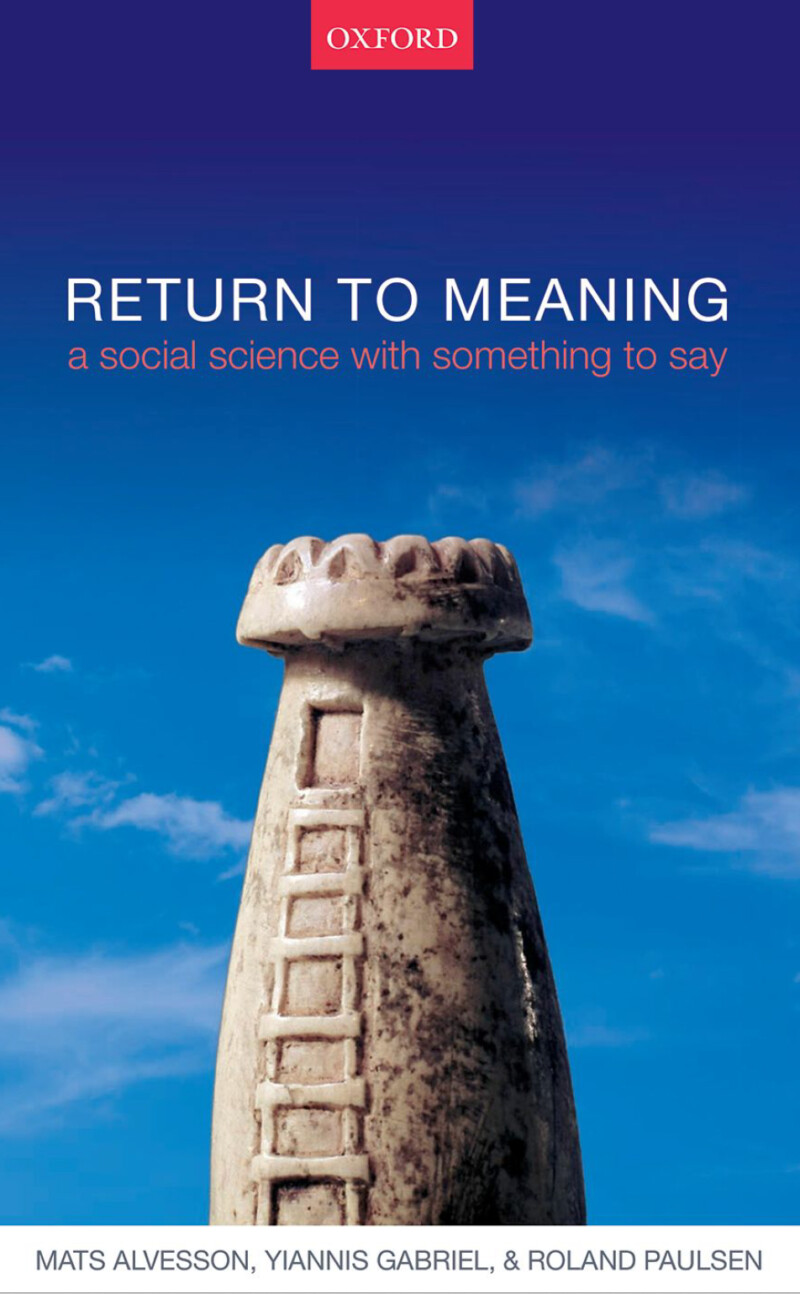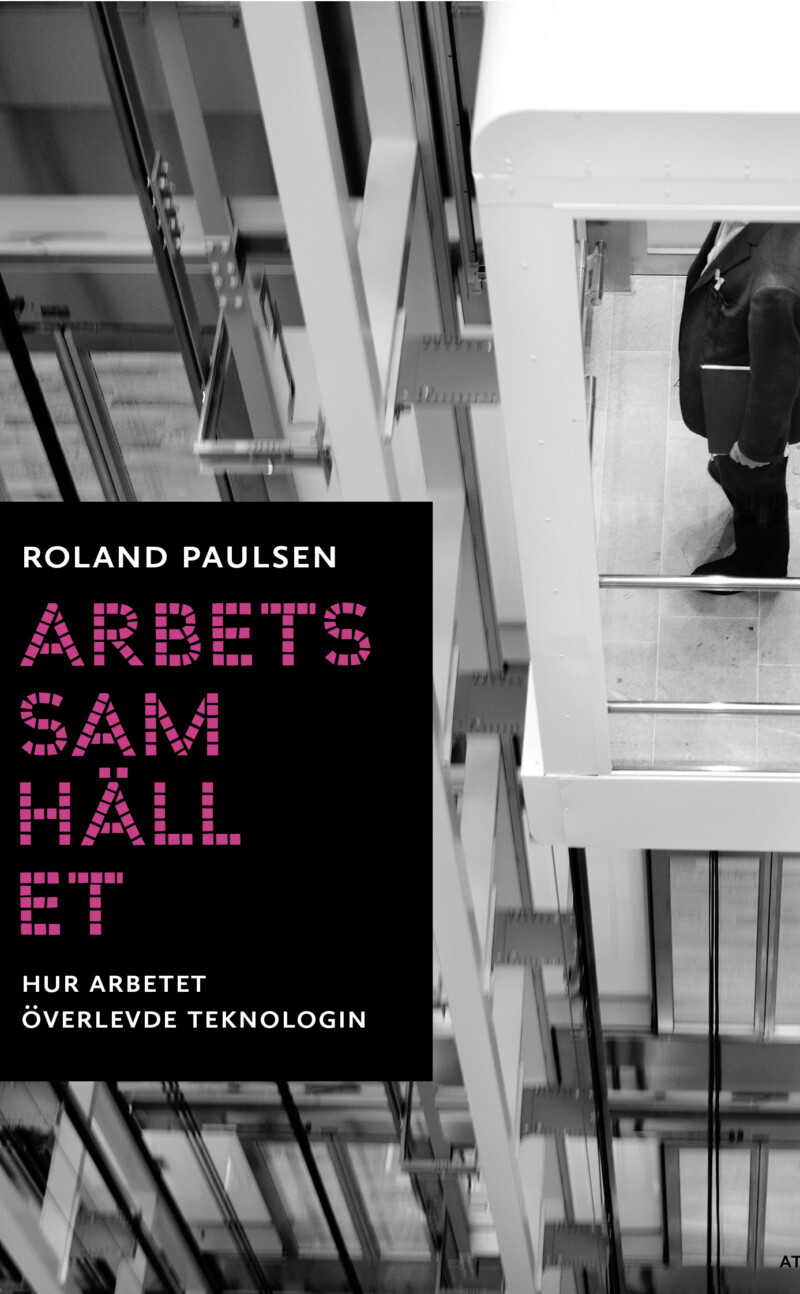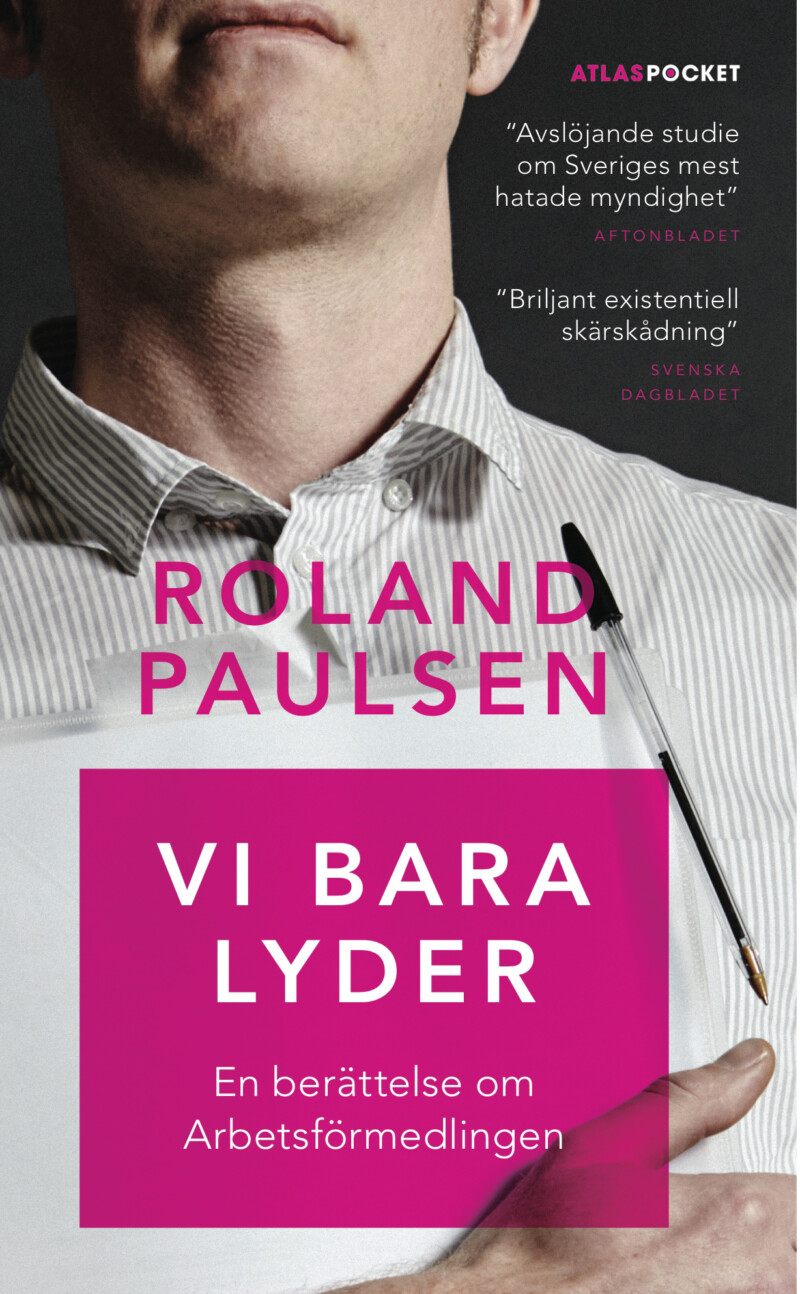
WHY WE WORRY: A SOCIOLOGICAL EXPLANATION
STOCKHOLM: ALBERT BONNIERS FÖRLAG (2020)
This is not a self-help book. This is a societal-help book.
What if we are doing too little about the Covid-19 pandemic; What if I left my stove on and my house burns down; What if I’ve chosen the wrong partner? Asking “what if?” is our mind’s way of calculating risks, imagining things that may happen. According to Roland Paulsen, associate professor in Sociology at Lund University, we have now—on a collective level—developed an inability to live with that uncertainty.
When you are standing at a train station anywhere in the Western world, one in every ten people around you will be on anti-depressants. It wasn’t always like this – the number of people who have been diagnosed with depression globally has risen by almost 20% in the last decade, and anxiety and depression are number one on the WHO’s list of reasons for ill health in the world today. So what has changed? We are financially better off than we’ve ever been, have higher living standards than ever before, and still, we can’t seem to avoid rising anxiety levels and constantly asking ourselves: what if?
Written with clarity and passion, Why We Worry is as much a panorama of the cultural variations and historical evolution of anxiety, as it is an inspiring call to action to do something about this societal epidemic. Constantly fascinating, Paulsen takes us down the labyrinth of Max Weber’s ideas about disenchantment, ayahuasca trips as a measure of dampening anxiety, and politics as risk-aversion rather than ideological dreaming. Based on hudreds of studies, ground-breaking research, and personal, heart-breakingly honest interviews, Roland Paulsen has written a sociological study of anxiety in our time, which in its easily-accessible style is Gladwellian in nature.
‘Roland Paulsen certainly entertains… I find myself chuckling and laughing out loud whilst reading.’
— Dagens Nyheter
‘Some of these conversations are so charged and beautifully constructed that you can almost imagine that you’re reading a great novel.’
— Kristianstadsbladet
‘With entertaining anecdotes and steadfast eloquence, the text beams with pop-scientific bliss which most authors in the genre would certainly envy.’
— Värmlands Folkblad
Please contact Madelene Andersson at Bonnier Rights for further information

EMPTY LABOR: IDLENESS AND WORKPLACE RESISTANCE
CAMBRIDGE: CAMBRIDGE UNIVERSITY PRESS, 2014 [book] [ebook] [audiobook]
While most people work ever-longer hours, international statistics suggest that the average time spent on non-work activities per employee is around two hours a day. How is this possible, and what are the reasons behind employees withdrawing from work? In this thought-provoking book, Roland Paulsen examines organizational misbehavior, specifically the phenomenon of ’empty labor’, defined as the time during which employees engage in private activities during the working day. This study explores a variety of explanations, from under-employment to workplace resistance. Building on a rich selection of interview material and extensive empirical research, it uses both qualitative and quantitative data to present a concrete analysis of the different ways empty labor unfolds in the modern workplace. This book offers new perspectives on subjectivity, rationality and work simulation and will be of particular interest to academic researchers and graduate students in organizational sociology, organization studies, and human resource management.
”Paulsen’s comprehensive treatment of both conceptual and empirical issues freshly infuses discussions of compliance/resistance with ideas about subjectivity. As noted by Alvesson in the book’s Foreword, Paulsen’s treatment of work and nonwork and of labor and empty labor is unconventional, careful, reflective, and at times ironic. With likewise praise, Paulsen’s Empty Labor was recently awarded the EGOS Book Award 2017.”
– Gili S. Drori, Organization Studies
”Those interested in work—or how to avoid it—will find this book both provocative and fascinating for what it suggests is really happening in the workplace. Just don’t tell the boss.”
– Christopher Andrews, American Journal of Sociology
”The strengths of the book are many, but two are notable. First, the book is humorous accessible. As a mid-career scholar, I review a lot of books, and most of the time the work can be tedious because so few academic books are both well-written and smart (indeed, I do a ton of empty labor in this part of my job, mostly to cope with the boredom). Much of this virtue is due to the data. Anyone can relate to appropriating time on the job, and some of his examples are literally laugh-out-loud funny. In one example, supervisors and lab assistants collude to simulate absurdly intense labor when management tours their facility. Tearing themselves away from an hours-long coffee break, everyone dons a white coat and goggles, a technician monitors the beakers, another perseverates over bacteria cultures, and the supervisor pretends to be so absorbed with the microscope that he screams at the boss as he enters the lab to get the hell out. But second, this isn’t just a fun read. I found the book refreshing politically and intellectually (in this, the book gets better as you read on – he is on fire in the last three chapters).”
– Cedric de Leon, Contemporary Sociology
”Paulsen’s book is an important impulse to renewing the study of resistance. In fact, I think it is comparable to the importance of Ackroyd and Thompson’s (1999) book on organizational misbehavior at a time when most sociologists of work claimed that resistance was a thing of the past. For sociology of work it opens up a whole new field of research: empty labor.”
– Jan Ch. Karlsson, Nordic Journal of Working Life Studies
”Empty Labor est incontestablement un livre novateur qui permet de penser le travail à partir du temps de non-travail et de voir d’une façon plus positive et réaliste la dynamique complexe de l’articulation entre la subjectivité des individus et les logiques organisationnelles.”
– Mircea Vultur, Relations Industrielles
”This is the shoddy reward that workers get for dramatically increased productivity: The work of an 8-hour day now fits comfortably into a 6-hour day. Corporate profits skyrocket, but the average worker must still spend 8-hour shifts on call for the boss. So, who’s stealing time from whom?”
– Lindsay Beyerstein, In These Times

RETURN TO MEANING: A SOCIAL SCIENCE WITH SOMETHING TO SAY with Mats Alvesson and Yiannis Gabriel
OXFORD: OXFORD UNIVERSITY PRESS, 2017 [book] [ebook]
This book argues that we are currently witnessing not merely a decline in the quality of social science research, but the proliferation of meaningless research, of no value to society, and modest value to its authors – apart from securing employment and promotion.
The explosion of published outputs, at least in social science, creates a noisy, cluttered environment which makes meaningful research difficult, as different voices compete to capture the limelight even briefly. Older, more significant contributions are easily neglected, as the premium is to write and publish, not read and learn. The result is a widespread cynicism among academics on the value of academic research, sometimes including their own. Publishing comes to be seen as a game of hits and misses, devoid of intrinsic meaning and value, and of no wider social uses whatsoever. Academics do research in order to get published, not to say something socially meaningful. This is what we view as the rise of nonsense in academic research, which represents a serious social problem. It undermines the very point of social science.
This problem is far from ‘academic’. It affects many areas of social and political life entailing extensive waste of resources and inflated student fees as well as costs to tax-payers. Part two of the book offers a range of proposals aimed at restoring meaning at the heart of social research and drawing social science back address the major problems and issues that face our societies.
”I agree with the authors that academics have much more power than we often realize. We can, if we choose, use it to intervene much more forcefully in vital social and political debates. I also agree with this book’s authors that our research is in crisis and needs an overhaul, a core argument that is powerfully reasserted in the book’s concluding chapter. Universities and business schools in particular have no divine right to exist. Work that exists only or mainly to promote our careers is worthless, and sooner or later it is a ‘game’ that the paying public will no longer allow us to play. This book offers radical alternatives that it is surely in our own self-interest to embrace.”
– Dennis Tourish, Organization Studies
”Despite some obviousness to it, their timely, insightful, and sometimes ironic yet funny book should become a compulsory reading for contemporary researchers (not only in the social sciences), publishers, politicians responsible for science, and all those interested in a creative dialogue with scholars. We all should look critically at what comes into the university inbox and take responsibility for what we send from our outbox.”
– Małgorzata Ćwikła, Organization
IN SWEDISH

ARBETSSAMHÄLLET – HUR ARBETET ÖVERLEVDE TEKNOLOGIN
STOCKHOLM: ATLAS FÖRLAG, 2017 [bok] [ebok]
Tack vare den teknologiska utvecklingen är behovet av mänsklig arbetskraft mindre än någonsin. Det välstånd som i början av 1900-talet krävde tio människors arbetsinsats kan i dag produceras av en enda människa. Ändå arbetar vi mer än vad man gjort under större delen av historien. Utbrändhet och stress ökar, jobb fylls av “tomt arbete” och pensionsåldern höjs.
I arbetssamhället är det ett självändamål att jobba oavsett vad vi gör på jobbet.
Roland Paulsen ifrågasätter idén om arbetet som samhällets grundbult. Arbetssamhället är en vass och tankeväckande introduktion till arbetskritiken.
”För var och en som intresserar sig för frågan om arbetets roll för individ och samhälle är Arbetssamhället, alldeles speciellt i den nya utgåvan, en viktig bok att ta del av. I hängmattan, på bussen till jobbet eller arbetsförnedringen eller på en strand på Österlen. Här finns konstruktiva utgångspunkter för diskussioner som kan föra utvecklingen framåt.”
– Malin Bergendal, Syre
”Paulsens bok rymmer en genuin kritisk potential väsensskild från den sedvanliga passivt-aggressiva hållningen, skenbart subversiv i sitt begråtande av den rådande ordningens missförhållanden.”
– Lennart E.H. Räterlinck, Sociologisk Forskning
”2010 hände något mycket märkligt. En ung sociologidoktorand gav ut en lärobok på förlaget Studentlitteratur och blev megakändis. ’Arbetssamhället’ var dess osexiga titel, ett inlägg i den organisationssociologiska debatten. Mannen hette Roland Paulsen och sju år senare syns han i tv-debatter, på DN:s kultursida och på tygkassar. Sällan har en forskare fått ett sådant genomslag.”
– Rasmus Landström, Dagens ETC

VI BARA LYDER – EN BERÄTTELSE OM ARBETSFÖRMEDLINGEN
STOCKHOLM: ATLAS FÖRLAG, 2015 [bok] [ebok]
Roland Paulsen skriver in sig på Arbetsförmedlingen och hamnar snabbt i gräl med sin handläggare om åtgärdernas meningslöshet. När han återvänder är det för att genomföra en sociologisk studie om funktionell dumhet.
Snart sitter han, som en i gänget, med en kopp kallnat kaffe på arbetsförmedlingskontoret i en mellanstor svensk stad. Vad han gör där är det ingen som riktigt vet. Han lyssnar till samtalen som förs i mötesrum, på handläggarkonferenser och jobbcoachträffar.
Vi bara lyder är en intelligent, humoristisk och radikal genomlysning av Sveriges minst omtyckta myndighet. Det är också en undersökning av byråkratiska ekorrhjul, och vad som får tjänstemän att nitiskt följa absurda regelverk de själva inte tror på. Resultatet är en personlig uppgörelse med hela idén om lönearbetets nödvändighet.
”En briljant existentiell skärskådning …”
– Isabelle Ståhl, Svenska Dagbladet
”Tankeväckande och originell, lika mycket för sin stil som för sitt innehåll …”
– Jon Weman, Arbetaren
”Att en simpel sociolog närapå blivit en folkhjälte är glädjande och häpnadsväckande …”
– Göran Greider, Aftonbladet
”Lika briljant som fasansfull …” Linda Skugge, Expressen
”Det är en ursinnig, svart bok Roland Paulsen skrivit. Man läser den andfådd av de öden som blixtrar förbi, i en bild av den moderna människans psykologi i ett samhälle som gör lydnadskurser av mänskliga behov.”
– Ulrika Milles, Arbetet
”Det känns att läsa Vi bara lyder. Emellanåt gör det ont. För det här är en välskriven (ibland nästan poetisk), reflekterande och elakt raljerande rapport från arbetslinjens frontlinje.”
– Mattias Ahlén, Östgöta Correspondenten